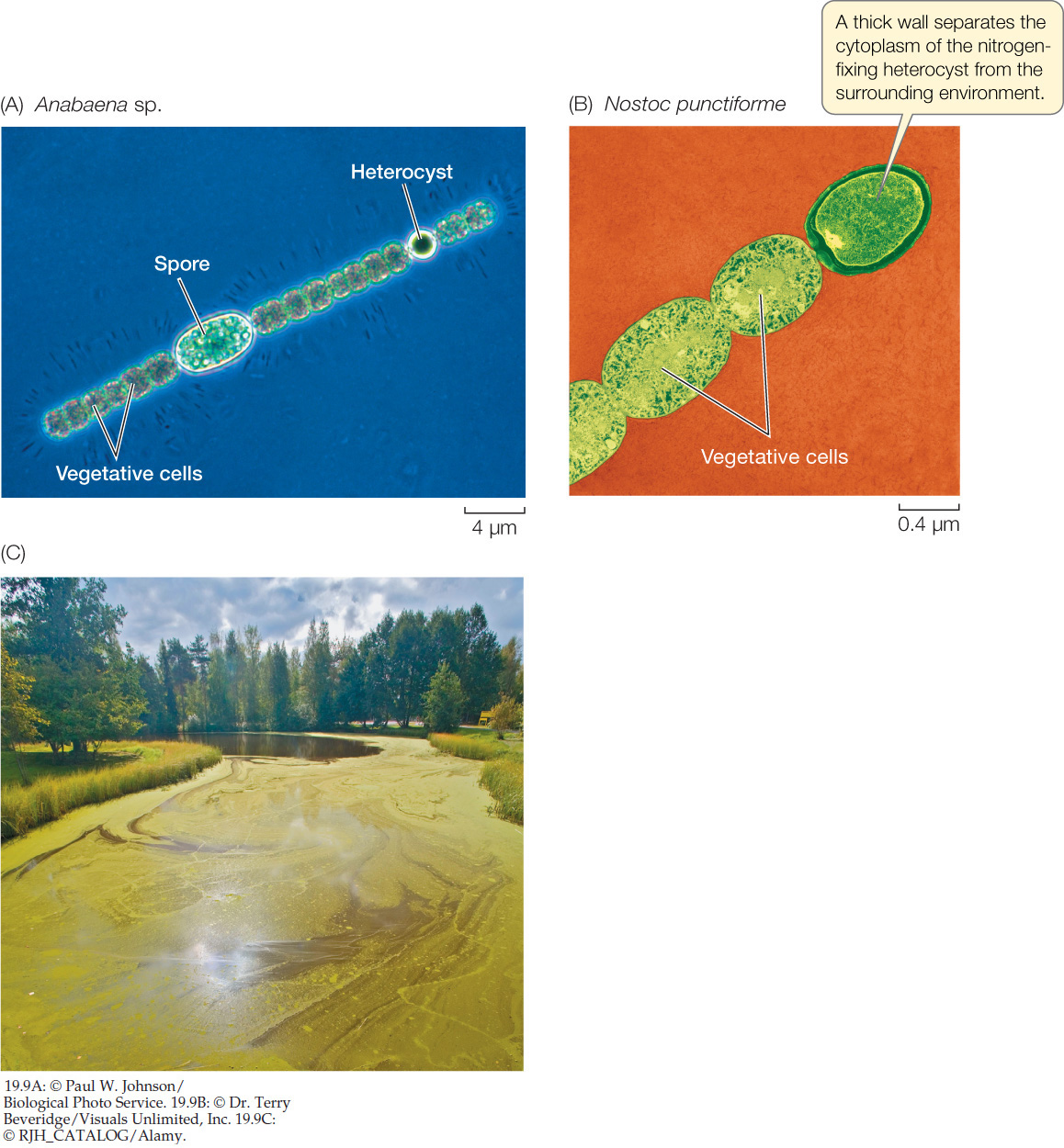
Figure 19.9: Cyanobacteria (A) Some cyanobacteria form filamentous colonies containing three cell types, including reproductive spores and photosynthesizing vegetative cells. (B) Heterocysts are specialized for nitrogen fixation and may serve as a breaking point when filaments reproduce. (C) This pond in Finland has experienced eutrophication: phosphorus and other nutrients generated by human activity have accumulated, feeding an immense green mat (commonly referred to as “pond scum”) that is made up of several species of free-living cyanobacteria.